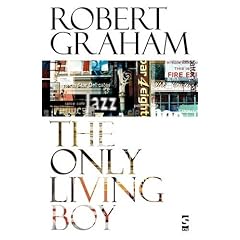
To the Lloyd's Hotel, downtown Chorlton for a book launch by my friend and former colleague Robert Graham. His new collection of short stories, The Only Living Boy, was the main event, and a goodly crowd enjoyed his witty and self-deprecating chat, and his sensitive readings.
I was moved to write a review on Amazon:
This collection of stories, written over the last quarter-century, showcases Graham's talent for the fine detail and the telling turn of phrase. Many of the stories are set in (to me at any rate) very familiar locations, and one of the strengths of these stories is the sense they exude of being grounded in the real lives of the believable people who inhabit them. That's not to say that whimsy doesn't have its place here- one story in particular, "Playing Gershwin" has that almost magic realist quality one finds in, for example, Paul Auster.
What strikes me most about these stories is their wit, not just in the sense that they are often witty, and funny, but in the old - fashioned sense of the word: they display a high degree of verbal dexterity. There's no room in the short story for the wasted word, and Graham wastes none.
If you want to be entertained, amused, intrigued, and occasionally challenged to reflect on life's iniquities, this volume will suit you well. Here's an author at the top of his game.
